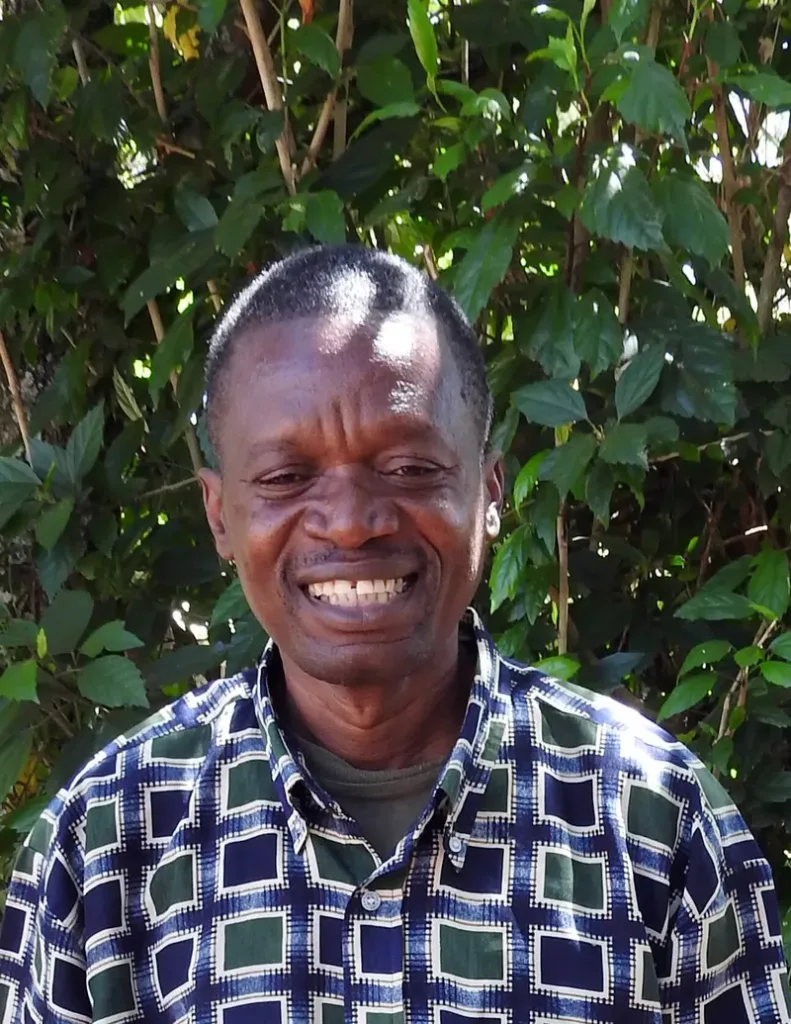John Mwamhanga, M.S.

John Mwamhanga, M.S.
Title
Location
Education
Teaching
about
Faculty Profile
Mr. John Mwamhanga joined the SFS Center for Wildlife Management Studies (CWMS) in 2010 as a Lecturer in Environmental Policy and Socioeconomic Values at Tanzania Center. Before joining SFS, he worked as Zonal Manager, Lake Zone Forest and Beekeeping Extension and Publicity Unit under the Ministry of Natural Resources and Tourism, Shinyanga, Tanzania from 2007 to 2010. In this position he involved in sensitization, advocating and implementation of forestry and beekeeping policies in the area with emphasis in Participatory Forest Management and Beekeeping developments. He also served as Assistant Project Coordinator for Ugalla Community Conservation Project in Tabora and Rukwa regions, Western Tanzania from 1998 to 2003 in which successfully managed to establish two pilot Wildlife Management Areas in Tanzania. The project was under Afri care/Tanzania an American international NGO funded by USAID/Tanzania. From 2005 to 2006 he worked as an Instructor for Environmental policies and Forest laws at Olmotonyi Forestry Training Institute, Arusha Tanzania.
Currently at CWMS (Tanzania) he is in charge of community relationship activities between the center and Tarangire-Manyara Ecosystem community, and he is a CWMS Depute Center Director.
Professional Affiliations
Research Projects
The research conducted at SFS field stations is designed to answer key questions related to critical and related social and environmental problems and to provide our hosts with detailed and accurate information for decision making and action. Faculty and student research projects are linked to the Center’s Strategic Research Plan, which defines an overarching research directive.
Project I: In what ways does tourism enhance local community participation in wildlife conservation in Tarangire–Manyara Ecosystem?
The economy of Tarangire Manyara Ecosystem is largely supported by tourism industry whereby, tourists from around the world travel to see areas environmental and wildlife attractions. Although local people who are engaged in tourism industry realized benefits, unfortunately its impacts on conservation was not known, therefore the study analyzed the economic, social and policy impacts from tourism on local people and their role in conservation. Data obtained from the field were descriptively and statistically analyzed and found tourism benefits do not have impacts on local people participation in conservation in the area.
Outputs:
The study report was presented to Tarangire-Manyara Ecosystem stakeholders conference.
Project II: Ecological, Economic and Cultural Values of Village Forests in Tarangire-Manyara Ecosystem (TME), Northern Tanzania
The concern of the study is that although local communities of Bunger, Kansay and Kambi ya Faru villages surrounding Buger montane forest in Karatu District Northern Tanzania have been using natural vegetations and forest produce from the proposed Bunger forest reserve to sustain their daily livelihood, it’s not known what are the vegetation’s products and services roles have on the local communities` attitudes and actions towards conservation. The study collects and analyzes information on the economic, social and cultural values community derives from these vegetation and forests and how these values influence these resources status in TME. Furthermore the best way to use local people traditions and culture to enhance conservation are explored to provide the answer of the project main question “In what ways and levels does benefits derived from natural vegetation and forests in a village land enhance local community participation in natural resources conservation in Tarangire – Manyara Ecosystem?”
Outputs:
Preliminary project report was distributed to stakeholders and was orally presented to the wards and village leaders meetings organized by Karatu district council authority.
Project III: Community Natural Resources-Based Business Entity Assessment in Tarangire-Manyara Ecosystem
This study intends to assess the efficiency of the Ngorongoro Maasai Cultural Bomas as a tourist’s attraction and source of local people income; local communities’ participation in beekeeping activity in Buger and Kansay villages; and the attitudes of local people towards their Burunge Wildlife management Area after ten years of its establishment in 2003. Semi-structured interviews through use of prepared questionnaire, Focus Group Discussions, checklist and observations methods are used to collect information from the tourists who visit the Maasai cultural in Ngorongoro, Beekeepers and non-beekeepers in Buger and Kansay villages and also from local community villages that surrounds Burunge WMA. It is expected that the findings will provide suggestions on how to enhance cultural values of these bomas to satisfy tourists and enhance the management capacity to improve the revenue of the bomas, also improve beekeeping industry in a study area and local people awareness and support conservation of Burunge wildlife management area.
Outputs:
This is ongoing project
outputs
Publications
Mwamhanga J. 2005. M.Sc. Dissertation Southern New Hampshire University – USA.
Mwamhanga J. 2002. Misitu ni Mali Newsletter Vol .VI. No. 1, 2002.
Presentations
At the Bunda District Development Forum.
Arumeru District Arusha, Tanzania Commissioned by SIMAVI, Netherlands.
Arumeru district, Arusha Tanzania.
Institute Olmotonyi, Wood Working Workshop project.
regarding potential market of their products and identification of financial sources, commissioned by FAIDA Business Development Service Company Limited of Arusha.
2005 Participated in the preparation of Tanzania Association of Foresters (TAF) Logical Framework document for its project.